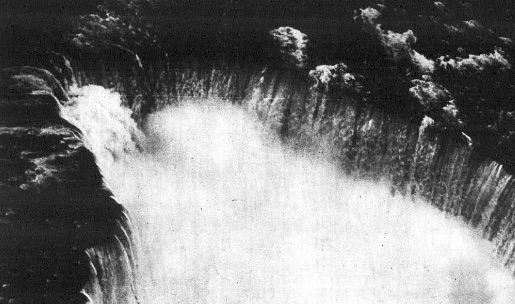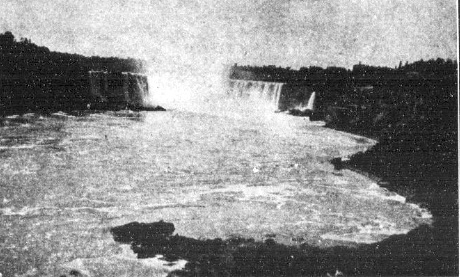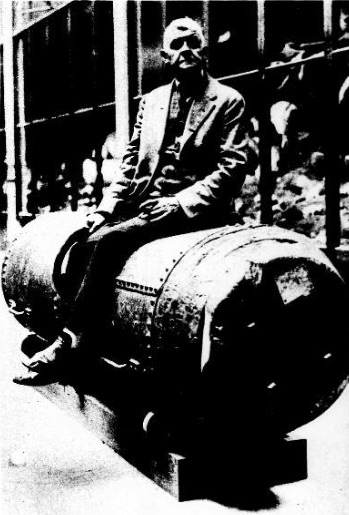
An article published in 1895 tells us of a group of men who would search the Niagara waters for dead men. The dead would be gathered up and the body hunters would get paid five dollars for every body that was found. It must have been an interesting occupation, even though it was surely gruesome.
Watching for Dead Men
The Grim Summer Occupation of Niagara Falls Fishermen
There exists at Niagara Falls and along the river from that point to Lake Ontario an industry, the like of which cannot probably be found in the civilized world. In his character of Rogue Riderhood, Dickens has portrayed a man who eked out an existence by robbing the dead bodies of unfortunates who had met death in the muddy waters of the Thames or had been thrown into the stream to conceal a greater crime, but to him and his kind the corpses had no interest, aside from any valuables they might have upon their persons.

At the falls, however, dead bodies have a marketable value, and it is the business of hunters or “floaters,” as they are called, that constitutes so unique an industry.
Yet the occupation is a perfectly legitimate one, says the Buffalo Express. The bodies are not despoiled in any way by the men who pursue this occupation, and there is little doubt that they are as honest a set as can be found anywhere.
They do not sell the bodies to medical colleges or for any purpose not recognized by law; in fact, it might be said they do not sell them at all, yet they realize, often, comfortable incomes from this source.

What makes this possible is the fact that there are two nations on the two banks of the Niagara river. In the towns along the river on both sides there are coroners, and it is the rivalry among these coroners that creates the demand for floaters and makes them a marketable commodity. The coroners receive their pay by fees, so much for every inquest, and are naturally anxious to learn of any new cases.
The annual number of cases is large, so large that a number of men exists on what they make in picking up floaters.
The falls have always been a favorite spot for suicides, and many a mysterious disappearance has been solved long after by the finding of a floater in the Niagara river which is identified as the missing one. Nearly every body that is drowned off the shores at Buffalo eventually finds its way to the falls, and once over the brink of the precipice it is soon picked up by some of these floater hunters.
Youngstown is an especially good spot for the finding of floaters. Here there is an eddy that brings the bodies in close to shore, and often they become becalmed, as it were, for days, long enough to rise to the surface and be picked up instead of drifting out into the lake. Two or three men make this their regular hunting ground, and passers-by on the river’s bank often hear a cry of joy arising from the depths of the gorge, which on inquiry proves to be the shout of one of these hunters who has just made a find.

The men are mostly fishermen and longshoremen, who fill in the dull season in the winter by fishing through the ice. They are a hardy set, rough in appearance and manners, and dulled by their long association with corpses so that they do not feel any qualms at handling the most decomposed body.
As soon as one of their number finds a floater, he anchors it in some safe spot by the riverside, where it will be concealed by the overgrowing bushes, and sets out to notify the coroner. One man, it is said, always waits until he has three bodies before sending for the authorities, saving himself two trips to the coroner’s office and receiving his payment in larger sums by this means. Most of them, however, are satisfied to get five dollars at a time, which is said to be the commission allowed by the officials for new business.
Source: The eagle. (Silver City, N.M.), 28 Aug. 1895.

